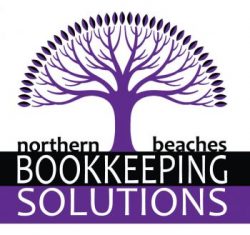Whether you’re managing your own books or handling bookkeeping for a small business, staying organised and accurate is crucial. Implementing best practices can streamline your financial processes and reduce costly mistakes. Here are the top 10 bookkeeping tips to help you become a more effective bookkeeper.
1. Separate Personal and Business Finances
Mixing personal and business finances is one of the most common bookkeeping mistakes. Open a dedicated business bank account and use it exclusively for business transactions. This makes it easier to track expenses, manage cash flow, and prepare accurate financial reports.
2. Stay Consistent with Data Entry
Consistency is key to maintaining accurate records. Set aside specific times each week to update your books, record transactions, and reconcile bank statements. Regular updates prevent data entry from piling up and help you spot discrepancies early.
3. Keep Detailed Records of All Transactions
Accurate record-keeping is essential for financial management and tax compliance. Save all invoices, receipts, and transaction records. Use digital tools like Xero or QuickBooks to store and organise these documents for easy access during tax time.
4. Track Accounts Receivable and Payable
Monitor outstanding invoices and ensure payments are received on time. Set up automated reminders for overdue accounts and maintain a record of all communications with clients regarding payments. Keeping a close eye on receivables improves cash flow and reduces bad debts.
5. Reconcile Bank Statements Regularly
Reconciling your bank statements is a crucial step in ensuring that your records match your actual bank balance. Compare your financial records to bank statements monthly to identify discrepancies, such as missing transactions or duplicated entries.
6. Use Accounting Software Effectively
Investing in reliable accounting software can streamline bookkeeping tasks and reduce human error. Popular tools like Xero, MYOB, and QuickBooks allow you to automate data entry, generate financial reports, and track key metrics in real time.
7. Stay on Top of Tax Obligations
Tax compliance is a critical aspect of bookkeeping. Track GST, PAYG, and other tax obligations accurately. Maintain a separate account for tax payments to avoid cash flow disruptions when tax bills are due.
8. Monitor Cash Flow Closely
Cash flow management is vital for small business success. Regularly review cash flow statements to track inflows and outflows, identify patterns, and make informed decisions about spending and saving.
9. Review Financial Reports Monthly
Reviewing financial reports regularly provides valuable insights into your business’s financial health. Analyse profit and loss statements, balance sheets, and cash flow reports to identify areas for improvement and spot potential issues early.
10. Stay Updated on Bookkeeping Best Practices
The bookkeeping landscape is constantly evolving. Stay informed about the latest industry trends, software updates, and tax regulations. Consider attending bookkeeping workshops or online courses to enhance your skills and stay competitive.
Conclusion:
Becoming a better bookkeeper takes practice and consistency. By implementing these 10 bookkeeping tips, you can maintain accurate records, streamline financial processes, and provide valuable financial insights to your business or clients. From regular data entry to monthly financial reviews, each step contributes to better bookkeeping and more informed decision-making.
